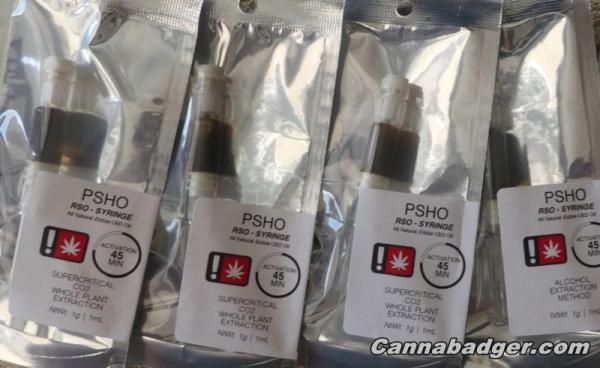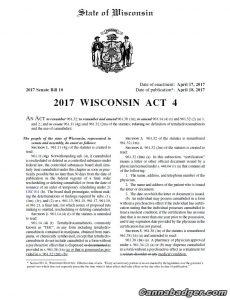Wisconsin Gov. Scott Walker signed Senate Bill 10, relating to definition of tetrahydrocannabinols and the use of cannabidiol, into law in a ceremony in Burlington on Monday, April 17. With Walker's signature, SB10 becomes 2017 Wisconsin Act 4.
While the CBD law passed in 2014, "Lydia's Law," 2013 Wisconsin Act 267, was focused specifically on the medical use of cannabidiol (CBD) for treatment of seizure disorders, particularly in children, Capitol sources confirm that 2017 Wisconsin Act 4 allows for any individual to possess CBD to treat a medical condition with a letter from their physician:
3(b) An individual may possess cannabidiol in a form without a psychoactive effect if the individual has certification stating that the individual possesses cannabidiol to treat a medical condition, if the certification has an issue date that is no more than one year prior to the possession, and if any expiration date provided by the physician in the certification has not passed. Text of new WI CBD law 2017 Wisconsin Act 4
This was reflected in the Assembly debate on the bill when Rep. Daniel Riemer (D-Milwaukee) cited the potential medical use of treating glaucoma with cannabidiol. A Mayo Clinic page referencing cannabis dosing was the source of his information, with Mayo referencing a small pilot study.
While production and distribution of CBD-rich cannabis and CBD products in Wisconsin remains illegal under this very limited new law, possession with a letter from a physician is now legal. There is also a bill to legalize in-state CBD production and distribution, SB104/AB158 from Sen. Chris Larson (D-Milwaukee) and Rep. Jimmy P. Anderson (D-Fitchburg), but its future in the GOP-majority legislature remains uncertain.


